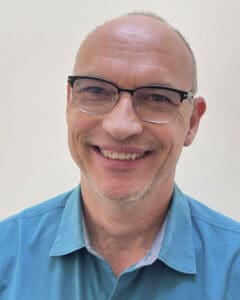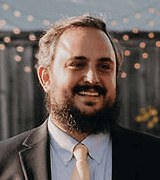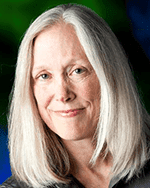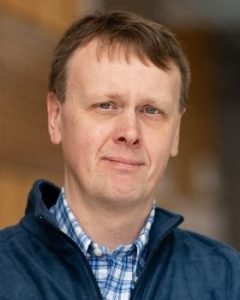Sunday, May 19, 2024, 1:00 – 2:00 pm, Banyan/Citrus
Moderator: Geoffrey Boynton, University of Washington
Discussants: Simon Fischer-Baum, National Science Foundation (NSF); Cheri Wiggs, National Eye Institute (NEI); and Ed Clayton, National Eye Institute (NEI) – Training Division
You have a great research idea, but you need money to make it happen. You need to write a grant. This workshop will address various funding mechanisms for vision research. Our panelists will discuss their organization’s interests and priorities, and give insight into the inner workings of their extramural research programs. There will be time for your questions.

Geoffrey Boynton
University of Washington
Geoffrey Boynton, is a VSS Board Member and studies visual attention, reading and prosthetic vision. After studying mathematics at U.C. San Diego and U.C. Santa Barbara, Dr. Boynton received a PhD in Psychology and Cognitive Sciences at U.C. Santa Barbara in 1994. After a decade at the Salk Institute in La Jolla, CA, he joined the faculty at the University of Washington. In 2019 led an effort to develop a research MRI facility at the new Center for Human Neuroscience in the Department of Psychology which he now directs. He also teaches courses on visual perception and statistics.

Simon Fischer-Baum
National Science Foundation (NSF)
Simon Fischer-Baum is a rotating Program Director for the Perception, Action, and Cognition Program at the National Science Foundation and an Associate Professor of Psychological Sciences at Rice University. His portfolio at the NSF includes PAC, Computational Cognition, and cross-directorate neuroscience programs, and his own research focuses on the cognitive and neural underpinnings of our ability to read and write, across different populations and writing systems.

Cheri Wiggs
National Eye Institute (NEI)
Cheri Wiggs, Ph.D., serves as a Program Director at the National Eye Institute (of the National Institutes of Health). She oversees extramural funding through three programs — Perception & Psychophysics, Myopia & Refractive Errors, and Low Vision & Blindness Rehabilitation. She received her PhD from Georgetown University in 1991 and came to the NIH as a researcher in the Laboratory of Brain and Cognition. She made her jump to the administrative side of science in 1998 as a Scientific Review Officer. She currently represents the NEI on several trans-NIH coordinating committees (including BRAIN, Behavioral and Social Sciences Research, Medical Rehabilitation Research) and was appointed to the NEI Director’s Audacious Goals Initiative Working Group.

Ed Clayton
National Eye Institute (NEI) – Training Division
Dr. Ed Clayton joined the National Eye Institute in July 2023 as a Program Director in the Training Division. He received his BS in Psychology from UNC-Chapel Hill and his PhD in Psychobiology from the University of Virginia. After a postdoc at the University of Pennsylvania, where he studied the role of the locus coeruleus in decision making, he joined the Center for Scientific Review’s Intern Program. After a year he was hired as a Scientific Review Officer in the Integrative, Functional, and Cognitive Neuroscience Integrated Review Group. During his time there, he was the SRO for the Auditory System and Neurobiology of Motivated Behaviors study sections. In 2012, Ed moved on to take the position of Director of Scientific Review at Autism Speaks. In 2013 he was promoted to Senior Director of Strategic Funding and Grants Administration where he oversaw the science funding program, as well as managed the predoctoral and postdoctoral fellowship programs. In 2015 Ed joined the Princeton Neuroscience Institute as their Director of Training and Professional Development. In this position Ed managed the Institute’s T32 program, led NSF and NIH grant workshops, started a monthly alternative career seminar series, served on the admissions committee, and Chaired both the Curriculum and Climate and Inclusion Committees. He also oversaw an NSF REU summer internship program, focused on providing research experiences to students from small colleges and from historically underrepresented groups.
